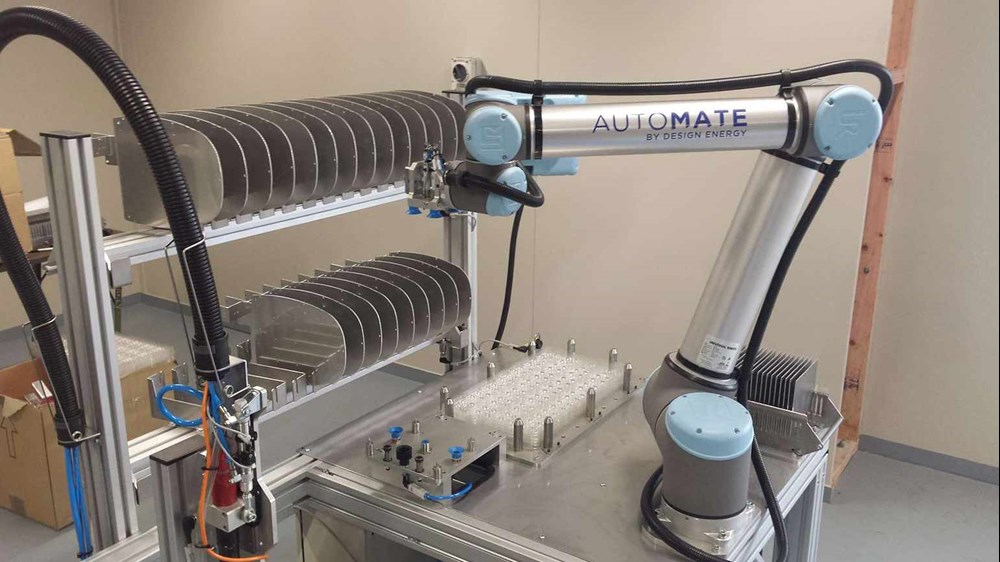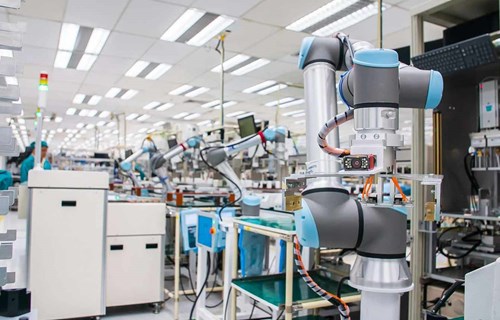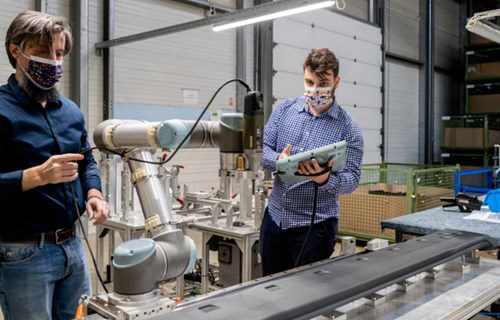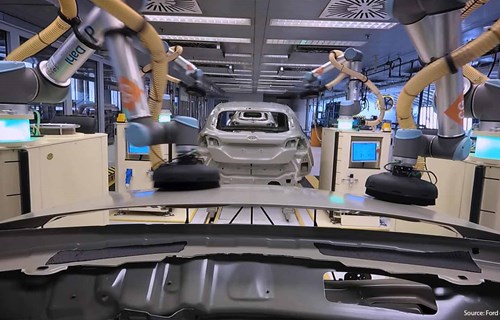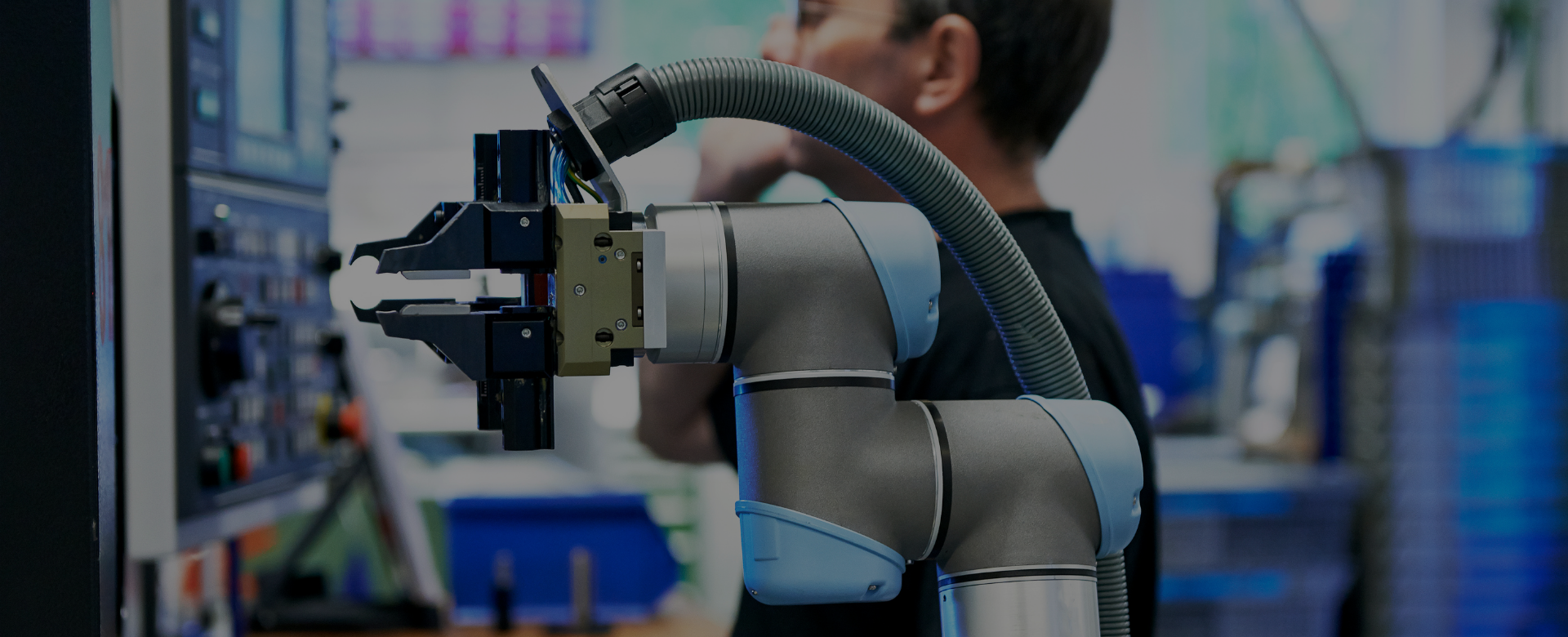Industrial robot applications have seen massive growth over the last decade, as a variety of industries have realized the potential of industrial robots and, more importantly, collaborative robot (or ‘cobots.’). Cobots are low cost industrial robots that are safe to operate in close proximity to humans. Cobots are more flexible than standard or traditional industrial robots, which means that they can be deployed on a wide variety of tasks from machine tending and welding to packaging & palletizing. The vast majority of cobot implementations are found in manufacturing and industrial environments, but cobots have the flexibility to be used in a wide variety of sectors from agriculture and medical to pharma.
With the world battling Covid-19, 2020 delivered some ingenious cobot implementations. From personal protective equipment manufacturing to swab testing, cobots are improving the efficiency, safety, and quality of countless processes. Read on to learn more about the capabilities of industrial robots in general and then we’ll look at some recent, innovative cobot applications.
What is an industrial robot used for?
There are a wide variety of industrial robot applications. Even though there are many ways to implement robotic technology, the goals of such machines are similar across all industries and processes--improved production. Robots are able to improve the efficiency and safety of many industries by assuming dull, dirty and dangerous jobs.
Traditional industrial robots are often mammoth-sized machines that are also static and difficult to repurpose and reprogram. By contrast, cobots are compact and flexible and can operate without safety cages or fencing directly alongside people.
What are the applications of cobots?
There are many collaborative robot applications across all industries. These include assembly, dispensing, finishing, machine tending, material handling, welding, material removal, quality inspections, and more. Below, we summarize three common classes of cobot deployments.
Material handling
Material handling is one of the most dangerous jobs in manufacturing. Materials such as metal, plastic and other substances can pose a great risk to human workers. Additionally, many material handling tasks are repetitive, which can give rise to repetitive strain injury.
Industries that use robots in manufacturing see significantly fewer workplace injuries. Heavy materials can easily be lifted and transported across factory floors using mobile robot platforms. Meanwhile, machine tending tasks, including those that involve heavy duty CNC machines, are also within the capabilities of Universal Robots’ cobots.
Assembly and quality assurance
Universal Robots’ cobots are specifically designed to work alongside human employees and relieve them from tedious and difficult assembly jobs. This includes welding small pieces together, drilling screws, and similar assembly tasks.
Cobots can also be used to assist with quality assurance during the production process. Unlike humans, cobots perform the same task the same way, every time, without growing tired or suffering any loss in performance. For example, cobots can place a camera in the same location for as many measurements and positions on as many work pieces as needed –all without optical recalibration.





